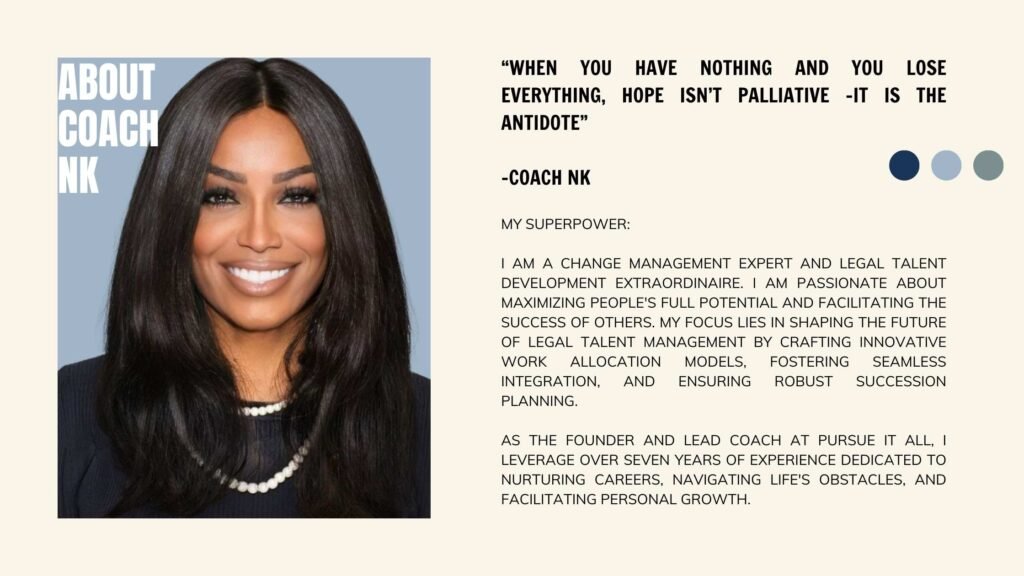Divorce is undeniably one of life’s most challenging transitions. It’s a period marked by emotional turmoil, uncertainty, and the overwhelming task of piecing together a new reality. While legal and financial aspects often take center stage, the emotional and personal work of healing and rebuilding is equally crucial. This is where divorce coaching steps in, providing a compassionate and structured path to navigate the complexities of this life-altering experience.
As a certified professional coach, I understand the profound impact divorce can have. It’s not just about ending a marriage; it’s about rebuilding your life after separation, rediscovering your identity, and creating a fulfilling future. Divorce coaching offers a unique and powerful approach to this process, empowering you to move forward with clarity, confidence, and resilience.
The Holistic Approach of Divorce Coaching
Divorce coaching is a specialized form of coaching that focuses on divorce’s emotional, personal, and practical aspects. It complements legal and financial support by providing a safe and supportive space to process your emotions, develop coping strategies, and create a vision for your future. It’s about more than just surviving; it’s about thriving.
Understanding the Role of a Divorce Coach
A divorce coach is a trained professional who provides non-legal support during and after a divorce to help you rebuild your life after a divorce. They work alongside, not in place of, attorneys and therapists, offering a unique blend of practical guidance and emotional support. Their focus is on helping clients:
- Navigate the emotional landscape: Divorce triggers a range of intense emotions, including grief, anger, fear, and uncertainty. A coach provides a safe, non-judgmental space to process these emotions.
- Develop coping strategies: They equip clients with tools and techniques to manage stress, anxiety, and other emotional challenges.
- Make informed decisions: Divorce involves numerous decisions, from legal and financial matters to co-parenting arrangements. A coach helps clients clarify their priorities and make choices that align with their goals.
- Rebuild their lives: They assist clients in setting new goals, creating a vision for the future, and taking the necessary steps to achieve them.
Developing Emotional Resilience: Coping Strategies for a Challenging Time
Beyond providing a listening ear, a divorce coach equips you with practical coping strategies to manage the emotional challenges of divorce and rebuild yourself after divorce. They help you identify triggers, develop healthy coping mechanisms, and build emotional resilience.
This might involve:
- Mindfulness and Stress Reduction Techniques: Learning to manage anxiety and stress through mindfulness exercises, deep breathing, and meditation.
- Cognitive Restructuring: Challenging negative thought patterns and replacing them with more positive and constructive ones.
- Self-Care Strategies: Prioritizing self-care activities, such as exercise, healthy eating, and engaging in hobbies, to promote emotional well-being.
- Grief Processing: Aiding the client through the stages of grief, and helping to identify the various levels of loss during the divorce process.
Clarity Amidst Chaos: Making Informed Decisions
Divorce necessitates many crucial decisions, from dividing assets and determining child custody arrangements to navigating legal procedures and financial implications. The emotional turmoil of divorce can cloud judgment and make it difficult to make rational decisions. A divorce coach helps you:
- Clarify Priorities: Identifying your core values and priorities to guide decision-making.
- Develop Effective Communication Strategies: Learning to communicate effectively with your ex-spouse, attorneys, and other involved parties, even amid conflict.
- Gather and Organize Information: Assisting in gathering and organizing financial documents, legal paperwork, and other relevant information.
- Evaluate Options: Helping you weigh the pros and cons of different options and make informed decisions that align with your goals.
- Goal Setting: Helping the client set realistic goals, and developing a plan to reach those goals.
Financial and Legal Navigation: Understanding the Landscape
While a divorce coach cannot provide legal advice, they can help you understand divorce’s financial and legal aspects.
They can:
- Explain Financial Concepts: Clarifying financial concepts, such as asset division, alimony, and child support.
- Organize Financial Documents: Assisting in organizing financial documents, such as bank statements, tax returns, and investment records.
- Prepare for Meetings with Attorneys: Helping you prepare for meetings with attorneys by identifying key questions and concerns.
- Budgeting and Financial Planning: Aiding in creating a budget and developing a financial plan for your post-divorce life.
- Understanding the Legal Process: Providing a general overview and helping you understand your rights and responsibilities.
Co-Parenting with Compassion: Prioritizing Children’s Well-Being
If children are involved, co-parenting becomes a crucial aspect of post-divorce life. A divorce coach can help you:
- Develop a Co-Parenting Plan: Creating a co-parenting plan that prioritizes the children’s well-being and minimizes conflict.
- Improve Communication with Your Ex-Spouse: Learning to communicate effectively with your ex-spouse about parenting issues.
- Manage Conflict: Developing strategies for managing conflict and minimizing the impact on children.
- Focus on the Child’s Needs: Helping the client to keep the child’s needs as the most important element of every decision.
- Parallel Parenting vs. Co-Parenting: Explaining the difference, and helping the client to determine which strategy is best for their situation.
Rebuilding Your Life: Creating a Vision for the Future
Divorce marks the end of one chapter and the beginning of another. A divorce coach helps you:
- Identify Your Strengths and Values: Rediscovering your strengths, values, and passions.
- Set New Goals: Setting realistic and achievable goals for your future.
- Develop a Plan for Rebuilding Your Life: Creating a step-by-step plan for achieving your goals.
- Build a Support System: Identifying and building a support system of family, friends, and professionals.
- Rediscovering Your Identity: Helping the client rediscover who they are, as individuals, outside of their previous marriage.
- Building Self-Confidence: Helping to rebuild self-confidence and self-worth after a divorce.
The Divorce Coaching Process: A Collaborative Journey
Divorce coaching is a collaborative process that involves regular meetings, typically weekly or bi-weekly. During these sessions, the coach will:
- Listen Actively: Providing a safe and supportive space to express your thoughts and feelings.
- Ask Powerful Questions: Challenging your assumptions and helping you gain clarity.
- Provide Tools and Resources: Equipping you with practical tools and resources to manage challenges and achieve your goals.
- Offer Support and Encouragement: Providing ongoing support and encouragement throughout the divorce process.
- Holding the Client Accountable: Helping the client stay on track with their goals.
Choosing the Right Divorce Coach
Selecting the right divorce coach is crucial for a successful coaching experience. Consider the following factors:
- Qualifications and Experience: Look for a coach with relevant training and experience in divorce coaching.
- Personal Style: Choose a coach whose individual style and approach resonate with you.
- Credentials: Look for a coach certified by a reputable organization.
- Chemistry: You must feel comfortable and connected with your coach.
- References: Ask for references from previous clients.
Conclusion: Embracing Transformation
Divorce is a transformative experience that can lead to personal growth and renewal. A divorce coach acts as a guide, empowering you to navigate the challenges of divorce, heal from emotional wounds, and build a fulfilling future. By providing emotional support, practical guidance, and strategic planning, a divorce coach helps you reclaim your life and embrace the opportunities that lie ahead. They are not a replacement for legal counsel or therapy, but a powerful addition to your support team during this difficult time. They help you not just to survive divorce but to thrive after it.
Success Stories
“After working with Coach Nk, I transformed my mindset and embraced leadership. I went from hesitation to confidently leading high-stakes projects.” — J. Stevens, CEO
Transform Your Mindset Today
Don’t let limiting beliefs hold you back. Take our quiz or book a consultation now to unlock the success you deserve.
About Coach Nk

Coach Nk helps high-achieving professionals conquer self-doubt and build unshakeable confidence to lead with impact.





